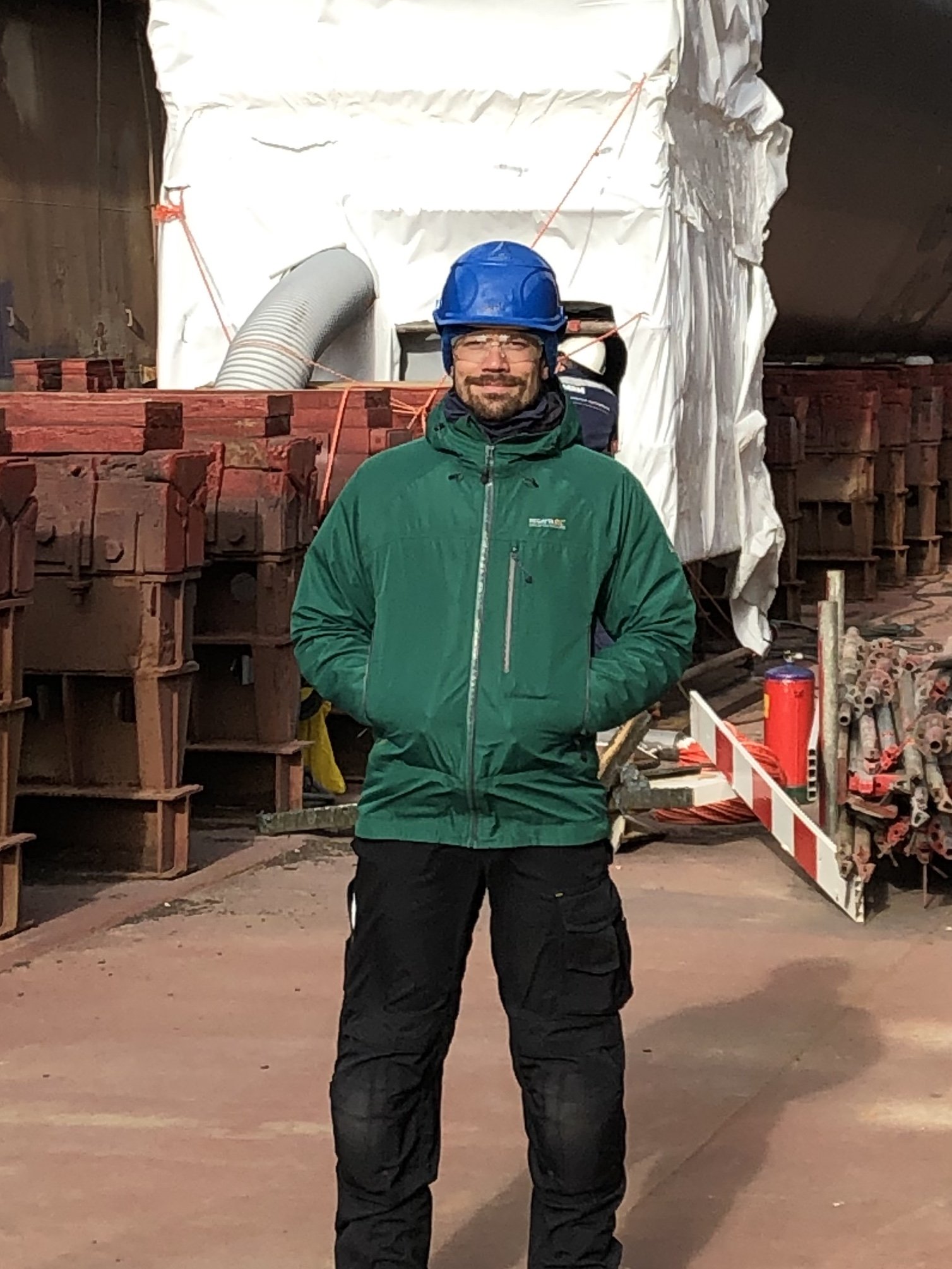I am truly humbled to receive this nomination. It was a very surprising and flattering phone call to receive, and it has been really enjoyable writing these words and reflecting on the last 17 years.
I chose to pursue a life at sea primarily for the adventure. I can honestly say I’ve had exactly that, and it still keeps on giving. My job has sailed me to every continent on the globe; to extreme climes both North and South, and the full range in between.
The first yacht I joined, MY Solemates was brand new. I remember being enormously impressed and in awe of the way she was designed, built and how she performed. Being in and amongst the ship builders in the final stages before delivery was a fantastic insight into how outstanding boats really can be and how much we can learn from all the skilled people in this industry
10 years later and after having being part the builds of MY VAVA II and MY EQUANIMITY in 3rd and 2nd Engineer roles, I have currently just seen the completion of MY Arrow as Chief Engineer. I am even more impressed with yachting today than I was on my first day. The more time you spend with the boats, the crew, our colleagues ashore and our guests, the more incredible everything seems and the more you realise how fortunate we are to work in such an dynamic industry.
Prior to yachting I had completed a Marine Engineering apprenticeship in the Royal Navy and sailed aboard HMS Chatham in the Middle East and HMS Endurance around Antarctica. At that point I wrongly thought all the studying had been completed. However, after further years of academics and obtaining an Engineering Degree and a Chief Engineer Unlimited license, I have realised that this learning process never actually stops. So unique and complex are these machines and being at the forefront of technology as they are, you always have plenty to learn. This is one of the things that makes the job of a yacht engineer so engaging and fulfilling.
Being an apprentice taught me that the best way to understand something properly (especially a subject with such a wide scope as marine engineering) was to start right at the bottom. Learn the important fundamentals and take each increasingly complex subject a step at a time. Every concept you master, every piece if machinery you become familiar with, every problem you fix all contribute to the valuable accumulation of experience, personal growth and understanding of the job. There is no way to cut corners; just respect the long process, take on the challenge and work hard. I consider this to be a huge contributing factor in the grounded and ego-free nature of many yacht engineers I have had the privilege of sailing with.
This lengthy process is not required by all, but feel it has suited me and that I have benefitted from it hugely. The list of inspiring crew who’s experience and professionalism I have benefitted from along the way is considerable and illustrates the vibrant and knowledgeable nature of yacht crew today.
One of the latest challenges I have enjoyed facing and one the privileged parts of the Chief Engineer role aboard a new yacht is being able to hire your own team. Spending the time to carefully recruit and establish what you feel to be the best possible department and seeing a solid and reliable engineering team being formed is extremely rewarding. Amongst everything else to be excited about in launching a new Feadship, I am most looking forward to see how our small team of professionals grow together and to be able to support the development of these individuals rising to this new challenge.
